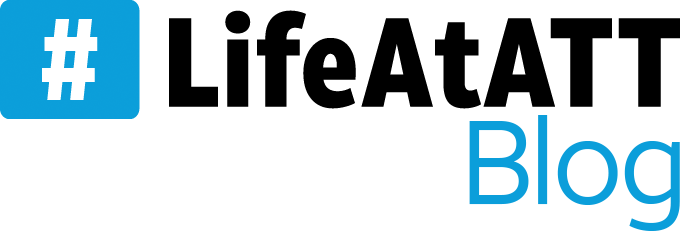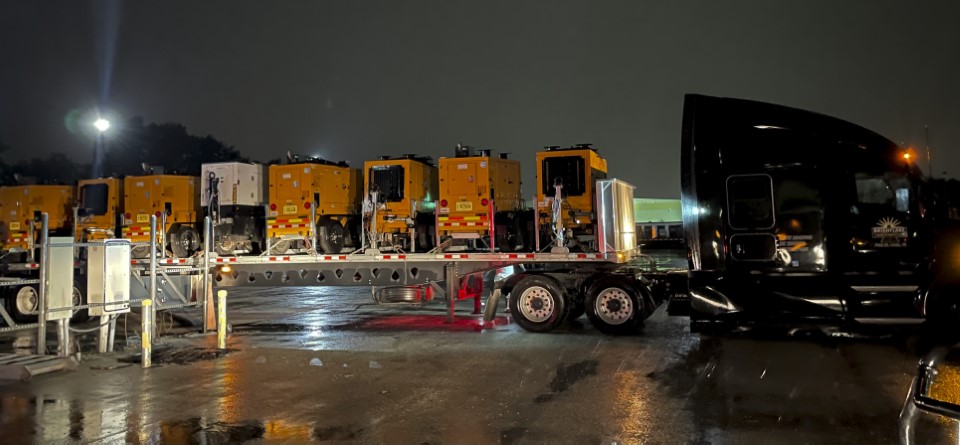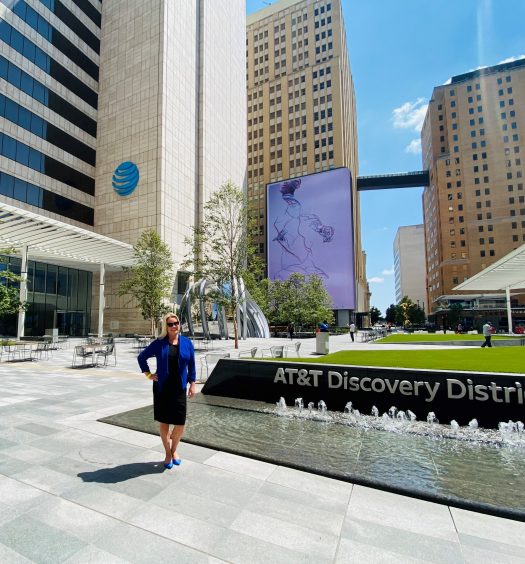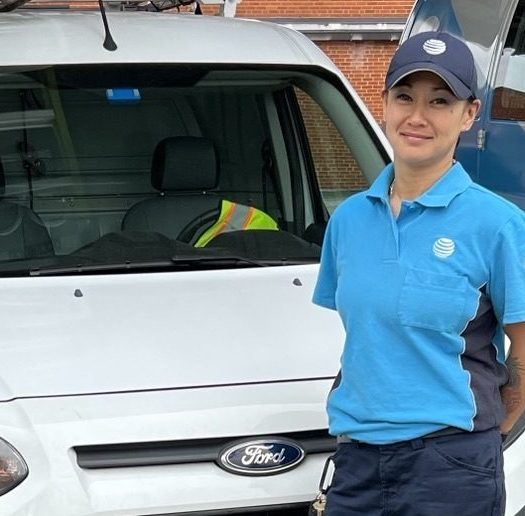Members of the AT&T Veterans employee group put boots on the ground during our Hurricane Ian disaster relief efforts.
SERVING THOSE WHO HAVE SERVED
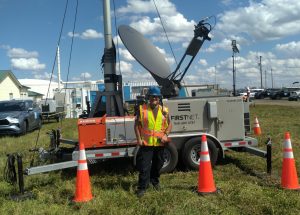
In 1983, the AT&T Veterans employee group was formed to help support, guide, and share experiences for those who have served our country, are currently serving, or are advocating for those who have served. Almost 40 years later this group has grown to 6,700+ members from 32 chapters across the nation. Adding more resources, training, and mentorship opportunities to their arsenal every day, they are making us one of the largest corporate advocates for military veterans, their families, and their supporters.
In turn, many of these veterans continue to give even more of themselves by volunteering to support the FirstNet® Response Operations Group and AT&T Network Disaster Recovery (NDR) efforts following major events like wildfires and hurricanes.
CALLED TO DUTY
Hurricane Ian hit southwestern Florida with a force it hasn’t seen in years. You’ve seen the devastation on the news and watched how the community came together. But what you may not have seen is that it took hundreds of volunteers to get Southwestern Florida connected again.
I had the opportunity to speak to several of our FirstNet and NDR volunteers and hear about their role in the relief efforts. These men are AT&T technicians by day and veterans at heart. As members of AT&T Veterans, there was no hesitation in dropping everything to deploy to Florida and do what they do best.
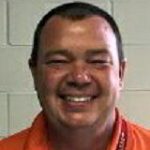
Eric Whitworth
Eric Whitworth, Manager of Network Services and Air Force veteran described how he became involved with the response. “An email went out nationwide to the responder volunteer network the Friday before Hurricane Ian was due to make landfall,” he said. “On Saturday, we got the call telling us to make our way to Tallahassee to meet up with the rest of the volunteers and ride out the storm. We had volunteers from all over Texas, Louisiana, Oklahoma, Georgia, all the way up to New Jersey.”
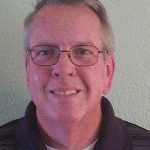
Mickey Coultes
Mickey Coultes – another Manager of Network Services and a Navy veteran – added, “With everyone there at basecamp, maybe 20% were from FirstNet and NDR team members, the rest of us were all volunteers.”
“Everyone was assigned equipment and assets to bring down,” continued Robert Heusser, Senior Applications Developer and AT&T Veterans Member. “We had SatCOLTs (satellite cell on light trucks), CRDs (compact rapid deployables), generators, and general equipment for basecamps. I brought down what we call the Jersey Net trailer SatCOLT. One of many.”
THE MISSION
The mission was simple, to get connectivity to first responders so they can reach those in need. Whether it was setting up a SatCOLT or CRD to a grocery store parking lot or running power generators to a basecamp on an airfield, the focus was working together to do what needed to be done to restore service all across impacted communities.
“The damage was devastating,” Eric told me. “People needed help. There was water to the roofs. People using inflatable rafts just to get personal belongings out. Power was out everywhere.” Seeing what a storm can do is tough, as Robert explained, “We’re there for the people first, we see the damage and it can be overwhelming, but you have to focus on the job and why we’re doing it.”
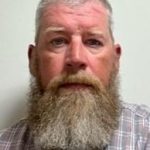
Marcus Norris
Marcus Norris, Principal – Advanced Tech Support and an Army veteran was also on hand. He described the experience: “We worked long hours, we never knew when or where we were going to rest our heads. We had to be ready for the next assignment, ready to help more people connect.”
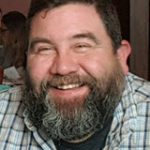
Mark Brisbay
Mark Brisbay, Professional – Technical Process/Quality and another Army veteran echoed the sentiment of his fellow volunteers. “Being able to say ‘we’re here to help.’ People were frantic just to make one call, one call to let their families know they were alive.”
“The joy that people have, when they’re in this horrible situation, just to have that cell connectivity, to make that one call, it’s so overwhelming,” Marcus continued. “I can’t even put into words the comfort we were giving them during some of the worst times of their lives, being part of that was remarkable.”
SENSE OF FAMILIARITY
When asked about how their military background prepared them for this volunteer deployment, they all said the same thing. They all said it was like being deployed in the military. The logistics, the chain of command, and the execution were all familiar. They knew what to expect and knew when to jump in and where.
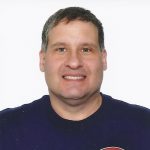
Robert Heusser
Robert commended the team’s effort saying, “FirstNet and NDR deployments are very organized and executed well. Everything is professional. Everyone is working together with a sense of purpose. Doing everything that needs to get done.”
Of the similarities to his service days Eric said, “In the military it’s high-stress, be ready for anything, anytime. There’s always something to do, get it done.”
Mark added, “I’ve seen what war can do. Being prepared and knowing what to expect in the worst conditions and sharing that with others in the field. We all have the same mindset from the military to focus on whatever needs to be done, you do it. Everyone was willing.”
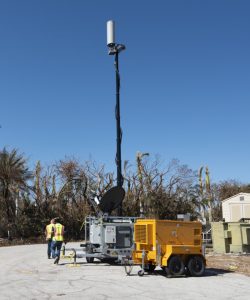 “I’m always amazed the way FirstNet and NDR can deploy that amount of equipment in that short of time. The managing of all that equipment is remarkable and a lot like being deployed,” Marcus said, drawing his own comparisons to military life. “Everyone is there for a job and there’s not a job too small or too big. We did whatever needed to be done. It reminded me of what we did and why we did it. To help someone out in the world made it all worthwhile.”
“I’m always amazed the way FirstNet and NDR can deploy that amount of equipment in that short of time. The managing of all that equipment is remarkable and a lot like being deployed,” Marcus said, drawing his own comparisons to military life. “Everyone is there for a job and there’s not a job too small or too big. We did whatever needed to be done. It reminded me of what we did and why we did it. To help someone out in the world made it all worthwhile.”
“It’s very structured from the chain of command to being inserted to where you’re needed,” Mickey said. “There’s the camaraderie and accountability to each other.”
“There’s a military saying,” Mark told me, “‘Mission First, Men Always’.” The meaning of that phrase could really be felt when listening to the experiences of this group of volunteers. One word that stood out in each conversation was camaraderie.
CONNECTING BACK
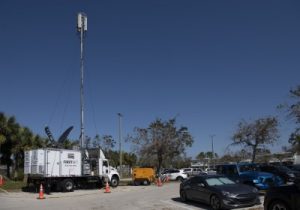 Not only being veterans but also being members of the AT&T Veterans group brings that camaraderie full circle. When asking about the employee group, again there was a similar, shared interest.
Not only being veterans but also being members of the AT&T Veterans group brings that camaraderie full circle. When asking about the employee group, again there was a similar, shared interest.
“I missed the camaraderie,” Mark explained. “I yearned to be with like-minded people. When you come back from war and transition into civilian life, even years after, sometimes you just need assistance. You need to reach out to those like-minded people. You need someone to talk to and feel valued. It’s important to be part of this employee group. We are visible to each other.”
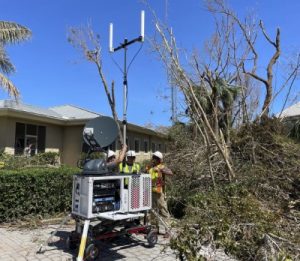
Eric described AT&T Veterans simply, “We’re a community of employees with similar experiences.”
“Being actively involved with helping other veterans is very rewarding,” Mickey told me. “Even if you’re not a veteran. Members who are not veterans themselves are just as important. Volunteering as a veteran or someone who supports veterans, you really learn the value of your life from what you give others.”
As the only non-veteran I spoke to, Robert shared what motivated him to be a part of the group. “I may not be a veteran,” He said, “but I have a great deal of respect for them and that’s why I’m part of the employee group. It’s a way to connect with them and give back for all they gave.”
Continue to make a difference with usFirstNet and the FirstNet logo are registered trademarks and service marks of the First Responder Network Authority. All other marks are the property of their respective owners.
